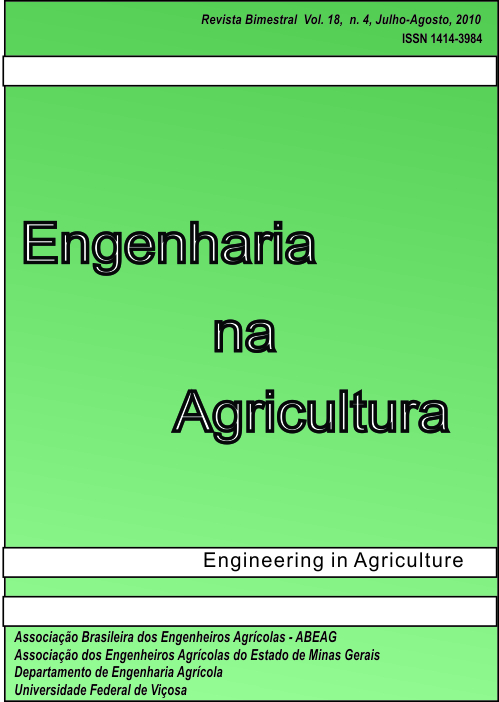ÓLEO REFINADO DE SOJA PARA ACIONAMENTO DE MOTORES DIESEL
DOI:
https://doi.org/10.13083/reveng.v18i4.157Palavras-chave:
Biocombustível, motor diesel e óleo vegetalResumo
O objetivo do trabalho foi verificar a viabilidade da utilização do Óleo Refinado de Soja (ORS) em motores de ciclo diesel de baixa potência. O trabalho foi realizado no Laboratorio de Mecanização Agricola da Universidade Federal de Viçosa. Para a representação das curvas de rendimento do motor, os dados foram tabulados e analisados estatisticamente com o auxílio do software SAS e as equações geradas foram testadas pelo teste T e F, e para a representação das curvas de rendimento foi utilizado analises de regressão. As características analisadas foram: a viscosidade cinemática das misturas em diferentes proporções de ORS e óleo diesel com um viscosímetro Saybolt Universal; os rendimentos foram realizados em um motor Yanmar modelo NSB75, com potência nominal de 5.5 cv a 1800 rpm, monocilíndrico e injeção direta, sendo o combustível utilizado para os ensaios as misturas de ORS e óleo diesel nas proporções de 0, 2, 10, 20, 30, 40, e 50%. Verificou-se que o aquecimento é uma técnica viável para a redução da viscosidade e que para atender Portaria ANP 310, as proporções têm que ser pequenas e deverão ser aquecidas, e o aquecimento é mais eficiente em proporções maiores de ORS. Foi verificado aumento da potência e do torque em função do aumento da proporção de ORS, com relação ao consumo específico não foram encontras diferenças significativas. Em relação ao custo concluiu-se que em R$ kW-1h-1, não ocorreram diferenças significativas. Conclui-se que, a utilização do óleo vegetal se mostrou viável, de forma técnica e outros trabalhos deverão ser realizados para avaliar o motor em condições de trabalho por longo período, para avaliar as condições de desgaste e de manutenção.Downloads
Downloads
Publicado
Como Citar
Edição
Seção
Licença
Autores que publicam nesta revista concordam com os seguintes termos:
O(s) autor(es) autoriza(m) a publicação do texto na da revista;
O(s) autor(es) garantem que a contribuição é original e inédita e que não está em processo de avaliação em outra(s) revista(s);
A revista não se responsabiliza pelas opiniões, ideias e conceitos emitidos nos textos, por serem de inteira responsabilidade de seu(s) autor(es);
É reservado aos editores o direito de proceder a ajustes textuais e de adequação às normas da publicação.
A partir da submissão, o autor estará cedendo integralmente seus direitos patrimoniais da obra à publicação, permanecendo detentor de seus direitos morais (autoria e identificação na obra) e de acordo com a Licença Creative Commons, CC BY-NC.








 Esta obra está licenciada com uma Licença
Esta obra está licenciada com uma Licença 